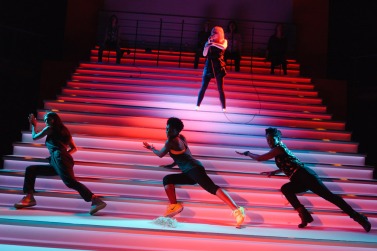 Mid performance of Peter Gill’s new play Versailles, I started thinking of the text and how it must look on the page. It was in one of the numerous, lengthy, cavernous monologues when the actor was pushing forward reams of sentences and words, in the presence of other people (fellow actors and the audience) who were trying to concentrate on their meaning.
Mid performance of Peter Gill’s new play Versailles, I started thinking of the text and how it must look on the page. It was in one of the numerous, lengthy, cavernous monologues when the actor was pushing forward reams of sentences and words, in the presence of other people (fellow actors and the audience) who were trying to concentrate on their meaning.
This might give the impression of an avant guard play but Versailles is as old fashioned as it gets. The setting is the end of WWI, in the drawing room of an upper class family that is not as well off as it used to be. Some men have come back from the war, some never will. The treaty of Versailles is being negotiated. From there we move to the back rooms of power and then back to the drawing room. Relationships are sketched but the play hardly ever focuses on them. Instead we get essay after essay, and history lesson after history lesson. Lovers’ last encounters are weighted down by lectures on class, money, self-determination, reparation. It’s like being cornered by an earnest, not entirely sober, fervent activist at a party: you agree with most of what he/she says and some of it is a bit witty but mostly your eyes glaze over. Continue reading







